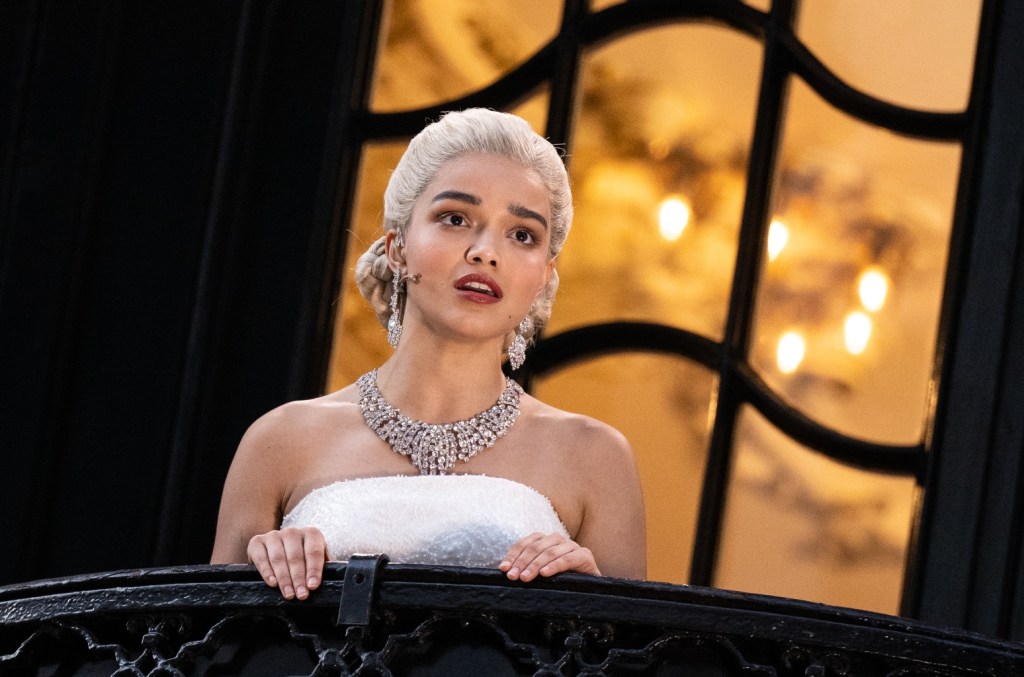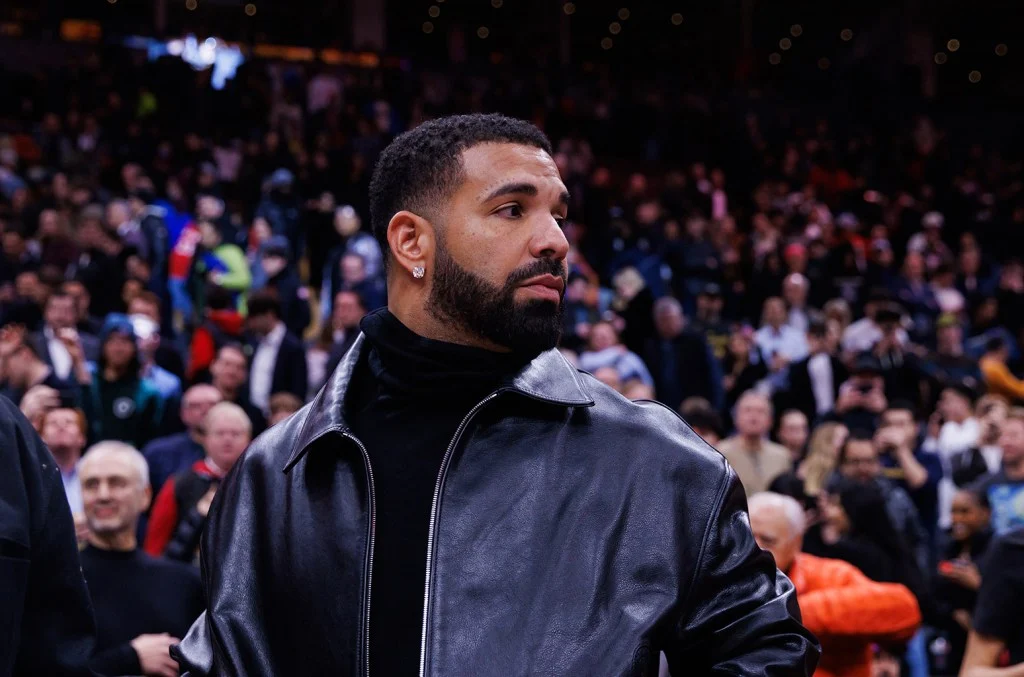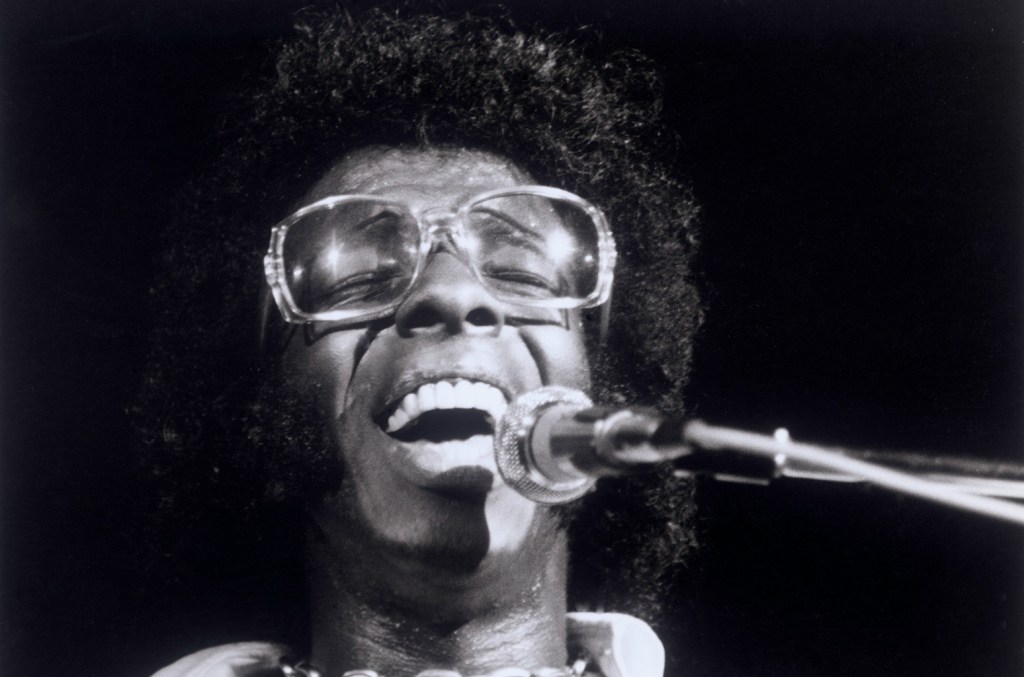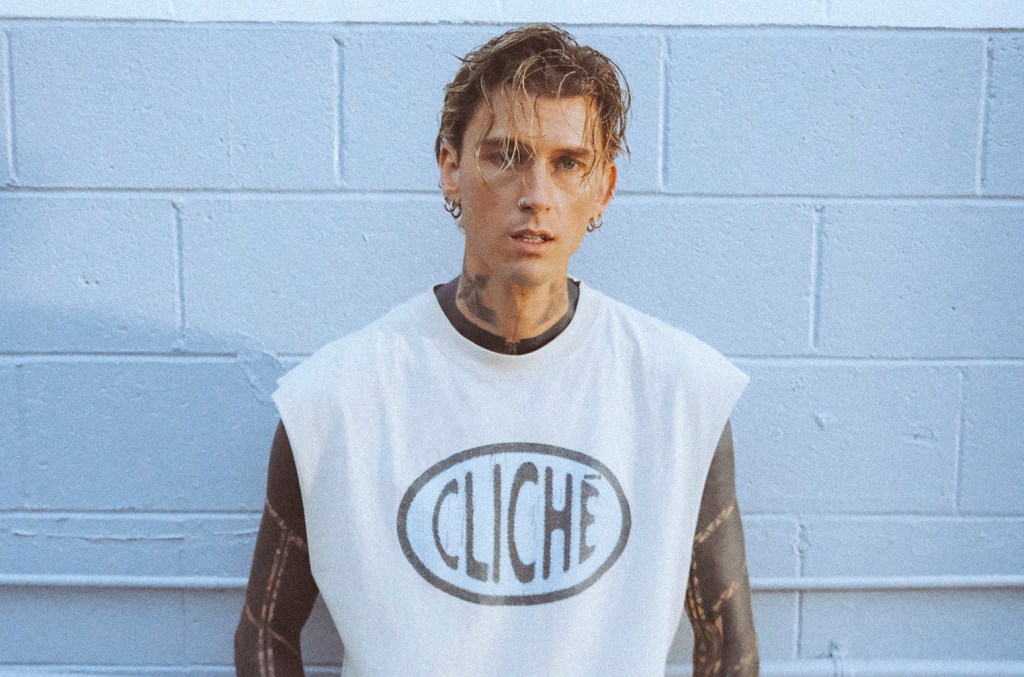Music
Page: 137
In a new production of Evita, one of the biggest moments isn’t on the stage. Midway through the show, Rachel Zegler, playing Argentine first lady Eva Perón, emerges onto an exterior balcony at the London Palladium and sings “Don’t Cry for Me, Argentina” to whoever is passing by below. The performance is streamed back on video to […]
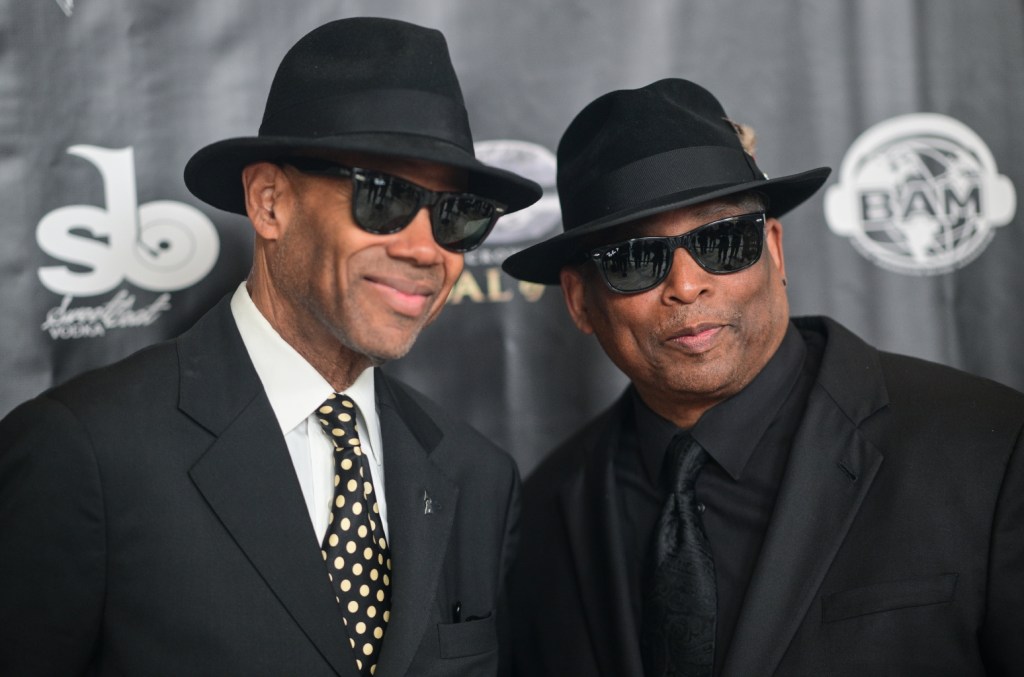
Jimmy Jam & Terry Lewis will receive the Vanguard Award at The Guitar Center Music Foundation’s fourth annual Gala and Benefit Concert, which will take place on Sept. 11 at The Maybourne Hotel in Beverly Hills, Calif. The pair, who have written and produced dozens of hits for such artists as Janet Jackson and Mariah […]
Shakira announced on Thursday (June 19) two new dates for the second leg of her Las Mujeres Ya No Lloran World Tour in Mexico.
The first will take place on Sept. 18 at Mexico City’s Estadio GNP Seguros. The second will mark her first-ever performance in the state of Veracruz, where she will perform at the Estadio Luis Pirata Fuente on Sept. 24. With the new dates, Shakira further breaks her own record of shows in Mexico on a single tour — now reaching a total of 28 on this trek.
“With the announcement of this new date, the Colombian singer solidifies herself as the artist with the most concerts at the iconic Estadio GNP Seguros,” promoter OCESA said in a press release.
Explore
Explore
See latest videos, charts and news
See latest videos, charts and news
“My beautiful Mexico! 12 shows at Estadio GNP! Thank you, thank you, and thank you again for continuing to break records with me. See you soon. I love you!!” Shakira wrote in an Instagram post, where she appears posing with a plaque of recognition from OCESA for her new milestone.
Trending on Billboard
The second leg of her 2025 trek in Mexico kicks off on Aug. 11 at the Estadio Caliente in Tijuana, Baja California, and continues on Aug. 14 at the Estadio Héroes de Nacozari in Hermosillo, Sonora; Aug. 17 at the Estadio UACH in Chihuahua, and Aug. 20 at the Estadio Corona in Torreón, Coahuila.
After making history with seven consecutive sold-out shows at the Estadio GNP Seguros, the Las Mujeres Ya No Lloran World Tour will return to Mexico City to complete another series of five shows on Aug. 26, 27, 29, and 30, and Sept. 18, for a total of 12 performances. This will make Shakira the first artist to achieve such a number of concerts at the venue (formerly known as Foro Sol).
The superstar, who has been adding dates to the tour as tickets continue to sell out, will also match Grupo Firme’s record of eight shows at Estadio GNP Seguros. The band is scheduled to perform their eighth show there on June 28.
The success of Shakira’s monumental tour has led the “Hips Don’t Lie” singer to top Billboard‘s monthly Top Tours ranking for the first time, generating $32.9 million with 282,000 tickets sold in February, according to figures reported to Billboard Boxscore. The following month, she again led the chart and broke records by earning $70.6 million from 11 reported shows — more than any artist has ever generated in a single March since the ranking’s launch in 2019.
Shakira’s tour has left an indelible mark on Latin America, drawing more than one million fans, according to OCESA. Also this year, the Barranquilla-born star was ranked No. 1 among Billboard’s Best 50 Female Latin Pop Artists of All Time.
Bruce Springsteen is opening up about his upcoming biopic Deliver Me From Nowhere.
In a new interview with Rolling Stone, the 75-year-old rock icon shared his thoughts on director Scott Cooper’s upcoming film, which is set to hit theaters on Oct. 24.
Though Springsteen’s touring schedule limited his time on set, he said The Bear actor Jeremy Allen White and the crew were gracious during his visits.
Explore
Explore
See latest videos, charts and news
See latest videos, charts and news
“Jeremy Allen White was very, very tolerant of me the days that I would appear on the set,” Springsteen told the publication. “I said to him, ‘Look, anytime I’m in the way, just give me the look and I’m on my way home.’ So the days that I got out there, he was wonderfully tolerant with me being there. And it was just fun. It was enjoyable.”
Still, The Boss admitted that he avoided being present for certain emotionally intense moments during filming.
Trending on Billboard
“I mean, there’s some unusualness to it because the movie involves, in some ways, some of the most painful days of my life,” he said. “If there was a scene coming up that was sometimes really deeply personal, I wanted the actors to feel completely free, and I didn’t want to get in the way, and so I would just stay at home.”
Deliver Me From Nowhere is based on Warren Zanes’ book of the same name and chronicles the making of Springsteen’s 1982 acoustic album, Nebraska. Check out a recap of the film’s first trailer here.
The film features Allen as Springsteen, Jeremy Strong as longtime manager Jon Landau, Stephen Graham as the musician’s father, Odessa Young as his girlfriend, Gaby Hoffmann as his mother, Marc Maron as producer Chuck Plotkin, and David Krumholtz as a Columbia Records executive.
Earlier this year, Springsteen told SiriusXM’s E Street Radio that seeing White play him on screen took some getting used to.
“A little bit at first, but you get over that pretty quick and Jeremy is such a terrific actor that you just fall right into it,” he said. “He’s got an interpretation of me that I think the fans will deeply recognize and he’s just done a great job, so I’ve had a lot of fun. I’ve had a lot of fun being on the set when I can get there.”
For his part, White has said he spent hours studying video footage and worked closely with a vocal coach to capture Springsteen’s unique voice and cadence.
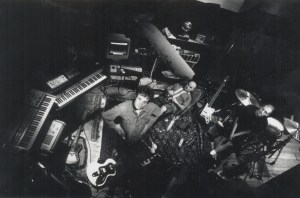
In 1995, the Argentine rock trio Soda Stereo returned to the studio after a three-year hiatus to record a brand-new album, Sueño Stereo (Stereo Dream), its seventh and final project. At the time, no one knew this would be the band’s farewell record. Its predecessor, Dynamo, was its most experimental and eclectic work, showcasing a complete turnaround of its new wave style over the previous decade. Sueño Stereo continued this exploration — an alternative album with a noticeable British influence, full of electronic sounds and violins, cellos and violas on many tracks.
The 1990s brought a completely different flow from the ’80s new wave that made Soda Stereo famous. As the alternative rock movement gained popularity in the U.S. and Europe, listeners also increased in Latin America, and Soda Stereo embraced it and made the genre its own. After 10 years of working nonstop, releasing album after album and touring Latin America, the band decided to experiment and created an utterly progressive rock album that fans and other artists still praise 30 years later.
Trending on Billboard
“Latin American rock DNA is partly based on a tremendous sense of inferiority because it always copied everything that was happening in England and the United States,” Ernesto Lechner, a music journalist from Argentina who has lived in the U.S. since the 1990s, tells Billboard. “Soda Stereo changed that.”
Soda Stereo revolutionized Latin rock history with their new sounds and exploration of diverse musical genres. That style would become the stamp of the lead singer Gustavo Cerati’s artistry, which he would perfect in his first solo album, Bocanada (1999), after Soda Stereo disbanded in 1997. Sueño Stereo, released on June 21, 1995, became the band’s magnum opus.
“Sueño Stereo, for me is, without a doubt, without discussion, Soda’s best album,” Lechner adds. “It’s a glorious record. A psychedelic rock album — electronic rock with moments of ambient music, a very sophisticated thing. It was like a full circle.”
“Is like the final masterpiece, very refined and perfect,” Valeria Agis, editor of Argentine newspaper La Nación, tells Billboard of the set, which in 2012 was ranked fourth by Rolling Stone in its 10 greatest Latin rock albums of all time.
Sueño Stereo’s journey begins with the alternative rock of “Ella Usó Mi Cabeza Como un Revólver,” a melancholy, complex track that presented a string arrangement of viola, violin and cello. A significant change also came with “Disco Eterno” and “Zoom,” two neo-psychedelic pop-rock songs on the set that became classics in the band’s repertoire.
Further into the album, The Beatles’ influence became apparent with the Britpop tracks “Paseando Por Roma” and “Ojo de la Tormenta.” The set concludes with a surprising shift in the last three songs, instrumentals in which the psychedelic sounds mash up with electronic ones.
For Soda’s bassist Zeta Bosio, it was the album that allowed him to keep going. A year before the release, his 2-year-old son Tobías had died in a car accident. “That was the album that brought me back to life a little, back to reality,” he tells Billboard. But it was also the album that brought the band back together as a family, allowing them to “become an organism where we could feel what the other was going to do.”
Drummer Charly Alberti felt it too. The album “presents us already at a really high musical level, the three of us,” he adds. “Things would come together really organically.”
Soda Stereo
Cecilia Amenábar
Within 15 days of its release, Sueño Stereo went platinum, making it an instant hit in Argentina and all over Latin America. Still, two years later, the band decided to end its 15-year journey together with the farewell tour El Último Concierto (The Last Concert), which culminated in a final show at the Estadio Monumental in Buenos Aires — a performance that left us not only with the live album and DVD of the same name, but also with Cerati’s iconic phrase “Gracias totales” (which literally means “total thanks” but does not translate perfectly into English).
Cerati took the time to focus on his personal projects. In 1999 he released Bocanada, the album he considered his official solo debut, although he had previously released two sets during Soda Stereo’s hiatus before Sueño Stereo. In this context, Bocanada, which means breath or puff, is used metaphorically to symbolize a “new breath of creativity,” as Cerati noted that the songs were coming to him very easily.
In 2007, Soda Stereo reunited for the Me Verás Volver Tour (You Will See Me Return), which took them all over Latin America and some U.S. states, including Florida and California. The trek began and finished at River Plate, Buenos Aires’ biggest stadium with a capacity of 70,000, where they performed six sold-out nights — five more than in 1997.
Soda Stereo was planning a few additional shows, even one in Spain, a market they never got to conquer. According to Bosio, the doors were open to doing more with the band. “The music was still intact. It was like we were entering a new stage of maturity and starting to understand things in a different way,” he says. “[But] being Soda Stereo always came with a lot of pressure. Especially for Gustavo, who was the main songwriter.”
In 2010, Cerati suffered a stroke after finishing a concert in Caracas, Venezuela, while promoting his last solo album, Fuerza Natural. He remained in a coma until his death on Sept. 4, 2014, at the age of 55.
But it was Sueño Stereo that prepared the ground for what came later. Sueño Stereo didn’t mark the end; it was the beginning of a new sound that still echoes 30 years later.
“One of our goals for this album was to take a subtractive approach,” said Cerati, as quoted in the book Cerati en Primera Persona (Cerati in First Person) by Maitena Aboitiz. “It was like saying: ‘Let’s pull back a bit’ — not to keep a low profile, but because we didn’t need to repeat the same thing over and over.”
Solo, Cerati had the freedom to do whatever he wanted, in his own words. With Soda, the exploration that began with Dynamo and that the band perfected with Sueño Stereo reached its highest point. The outcome was one of their most important pieces and one of rock’s greatest bodies of work, influencing artists all over Latin America and the world for years to come.
Drake is getting candid about his recent gambling misfortunes.
On Wednesday (June 18), the 38-year-old rap superstar took to social media to reveal the millions he’s lost through sports betting over the past month.
“Gotta share the other side of gambling…,” Drake wrote on his Instagram Story alongside a screenshot of his hefty losses. “Losses are so fried right now I hope I can post a big win for you all soon cause I’m the only one that has never seen a max these guys max once a week.”
According to the post, the Toronto MC placed nearly $125 million in bets over the past month, resulting in about $8 million in losses. While Drake didn’t detail which specific wagers led to the downturn, recent NBA and NHL playoff games have dominated the sports betting scene.
Earlier this month, he revealed a $750,000 bet on a cricket match, backing the Royal Challengers Bengaluru to beat the Punjab Kings. The post, which tagged gambling platform Stake — with whom Drake has an endorsement deal — is just one of many high-stakes wagers he’s publicly shared.
Trending on Billboard
This isn’t the first time the OVO boss has taken a major hit. Earlier this year, Drake bet $1.25 million on the Toronto Maple Leafs to win game seven and advance to the Eastern Conference Finals — only for the NHL team to fall to the Florida Panthers.
“I am a flawed sports better,” he recently admitted in a mock interview on Instagram this while promoting his partnership with Stake. “I will not deny that. That’s not my gift. I’ll let everybody roll with it. I’m sure if you’re a Drake curse believer, there will be plenty more content in the future to confirm your theories because my slips do not cash out. But one day I’m gonna have a parlay that’s insane.”
Despite the recent losses, Drake isn’t backing down. In another IG Story post on Wednesday, he revealed an $800,000 bet on game six of the 2025 NBA Finals. With the Oklahoma City Thunder leading the series over the Indiana Pacers, Drizzy placed $600,000 on a Thunder win and another $200,000 on them winning by a 6–10 point margin. If both bets hit, his total payout would be an estimated $1.7 million.
In music news, Drake is rumored to be working on a new album, reportedly titled Iceman, which many fans expect to drop before the end of 2025. While the rap star hasn’t confirmed or denied any details about the project, fellow artist Smiley recently hinted that Drake has been putting in serious work on something new.
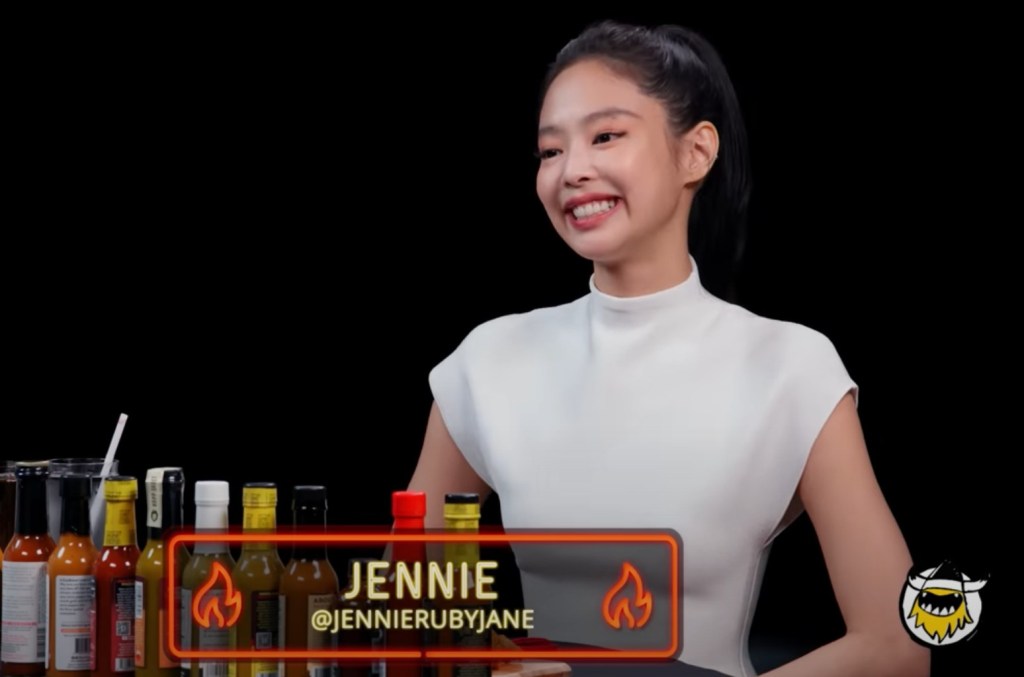
JENNIE had a pretty rough time taking on the infamous Hot Ones challenge.
During her appearance on the web series Thursday (June 19), the BLACKPINK star — who admitted early on that she doesn’t eat spicy food — began the episode with optimism, but ended up crying for help and running tearful laps around the table after facing the fiery spate of wings.
“In my daily life, I have nothing — no spice in my life,” JENNIE told host Sean Evans at the top of the show. “I don’t like spicy food or anything to do with spice. If anything, I like things plain, but here I am, facing my fear.”
And face it she did. Things got painfully intense as the 29-year-old powered through the spice-laden challenge, following in the footsteps of her BLACKPINK bandmates ROSÉ and LISA, who had previously braved the wings of death in past episodes.
Trending on Billboard
Between interview questions about her debut solo album, Ruby, songs she fought for on the project, the importance of skincare, hearing fans sing her lyrics at concerts, and being a hamster mom, the singer and rapper visibly unraveled with each increasingly scorching bite. “I think I’m allergic to spice!” she said at one point.
The heat hit a whole new level when JENNIE reached wing No. 8, featuring the notorious Da’ Bomb hot sauce. “This is no joke,” she said, desperately grabbing a napkin to fan herself. After taking a dramatic lap around the table, she reached for milk and ice cream while screaming in agony. “I can’t hear anymore,” she said, forcing a smile. “God, help me!”
After somewhat regaining her composure, Evans asked if JENNIE might be able to convince JISOO — the only BLACKPINK member who hasn’t yet appeared on Hot Ones — to take on the challenge.
“100%, because she is the one who taught me spicy and she’s the other you,” JENNIE replied. “Like she made me eat spicy food with her. Ever since we were trainees. So, I think [Jisoo] should come on this show. You’re gonna love it.”
Reflecting on her bandmates’ appearances, she added, “Whatever ROSÉ and LISA did, this is the real reaction. Because I watched their episode and they were so chill about it so I was like if they’re doing it, maybe I can do it too. But I can’t!”
Watch JENNIE’s Hot Ones episode above.
“Elvis Presley. Bob Dylan. Lennon & McCartney. And now SLY STONE. The new leader.” So proclaimed an ad that ran in Billboard in April of 1969, essentially proclaiming that it was Sly Stone’s turn to take over as the leading voice in all of popular music. And given the run that he was in the […]
Johnny Marr has spoken on his decision to turn down an “eye-watering” amount of money to reunite The Smiths, saying that the “vibe” wasn’t right to get the band back together.
Explore
See latest videos, charts and news
See latest videos, charts and news
Marr was appearing on the Stick to Football podcast alongside former players Roy Keane, Gary Neville and Ian Wright to discuss his affinity with soccer club Manchester City and his role as guitarist in one of indie music’s most legendary bands.
The Smiths were formed by Marr in 1982 when he and a friend recruited Morrissey to join the group as vocalist and lyricist; the band’s classic lineup was completed by Mike Joyce (drums) and Andy Rourke (bass).
Trending on Billboard
The group released four studio albums between 1984 and 1987 alongside a number of live albums and B-side and singles collections. Meat is Murder (1985) and The Queen is Dead (1986) both hit No. 1 on the U.K.’s Official Albums Chart; their debut The Smiths (1984) and final record Strangeways, Here We Come (1987) both hit No. 2. Creative and personal differences between Marr and Morrissey saw the former leave the group in July 1987 and the group folded the following year.
Both Marr and Morrissey have had wildly successful solo careers but a reunion has seemed unlikely ever since. In 2006, Moz told the BBC, “I would rather eat my own testicles than reform the Smiths, and that’s saying something for a vegetarian.”
In August 2024, however, Morrissey claimed that he and Marr had received a “lucrative offer” from AEG to reform with the band’s surviving members, and to tour as a live band in 2025; the group’s bassist Andy Rourke died in 2023. In the post on his website Morrissey Central, Moz revealed that he had said yes to the proposal but that Marr had not responded. A month later, Marr said on his Instagram that he did not “ignore the offer — I said no.”
Now speaking on the Stick to Football podcast Marr has gone into more detail about why he turned down the offer, despite seeing close friends (and City supporters) Liam and Noel Gallagher reform Oasis in August 2024 for a global tour.
“We got made an offer recently, but I said no,” he said. “It was a little bit about principles, but I’m not an idiot, I just think the vibe’s not right.”
Marr added, “It was an eye-watering amount of money, but also, I really like what I’m doing now which makes it a lot easier. I like where I’m at. I still want to write the best song I’ve ever written. I want to be a better performer.”
Morrissey and Marr have traded barbs through the press for decades, and in 2022 Morrissey called on his former bandmate to “stop mentioning my name” in interviews. Marr responded saying, “When you’re attacked out of the blue, particularly in public, you have to defend yourself.”
Speaking to Uncut he said the pair are too estranged to ever work together again. “It won’t come as any surprise when I say that I’m really close with everyone I’ve worked with — except for the obvious one. And that isn’t that much of a surprise because we’re so different, me and Morrissey.”
Following The Smiths’ dissolution, Marr played as a member of a number of groups including The Pretenders, Electronic (with New Order’s Bernard Sumner), The The, Modest Mouse and The Cribs. In 2013 he launched a solo career and has released four LPs under his name and performed on global tours.
Earlier this week Marr expressed support for Kneecap during their ongoing controversy, and backed them to perform at Glastonbury Festival next weekend (June 27-29) amid calls for them to be removed from the line-up.
Check out Marr’s appearance on the Stick to Football podcast below.
At 35, mgk is still a kid at heart. The rapper-turned-rock star is set to perform on the 2025 Kids’ Choice Awards, which will air live on Saturday (June 21) at 8 p.m. ET/PT from Barker Hangar in Santa Monica, California. Tyla is set to host the show.
mgk will perform “Cliché,” the lead single from his upcoming album Lost Americana. The song has so far reached No. 62 on the Billboard Hot 100 and No. 10 on Hot Rock & Alternative Songs. The performance will come just a day after mgk performs on The Today Show’s Citi Concert Series.
All six of mgk’s studio albums have reached the top 10 on the Billboard 200, with the last two – Tickets to My Downfall and Mainstream Sellout – reaching No. 1. (The latter album also received a Grammy nod for best rock album.) His seventh studio album, Lost Americana, is due Aug. 8.
Trending on Billboard
The Cleveland, Ohio, native’s highest-charting hit on the Hot 100 is “Bad Things,” a 2016 collab with Camila Cabello that reached No. 4.
KATSEYE, which recently notched their first Billboard Hot 100 hit with “Gnarly,” was previously announced as a performer on the show. They’ll perform “Gnarly.”
Nickelodeon Kids’ Choice Awards will celebrate fans’ favorites from film, television, music, sports and more. Nickelodeon is calling the show the biggest party of the summer. It is certain to have more epic slimings than any other show. The show will simulcast across Nickelodeon, TeenNick, Nicktoons, the Nick Jr. channel, MTV2 and CMT, and also air on Nickelodeon channels around the world.
Leading the pack with four nominations each are Ariana Grande, Lady Gaga and Kendrick Lamar, followed by Jack Black, Dwayne Johnson, Selena Gomez and Jelly Roll with three nods apiece. First-time nominees include Gracie Abrams, Zach Bryan, Jordan Chiles, Frankie Grande, Cynthia Erivo, Doechii, Keith Lee, Chappell Roan, Shaboozey, Shohei Ohtani and Florence Pugh, among others.

 State Champ Radio
State Champ Radio 